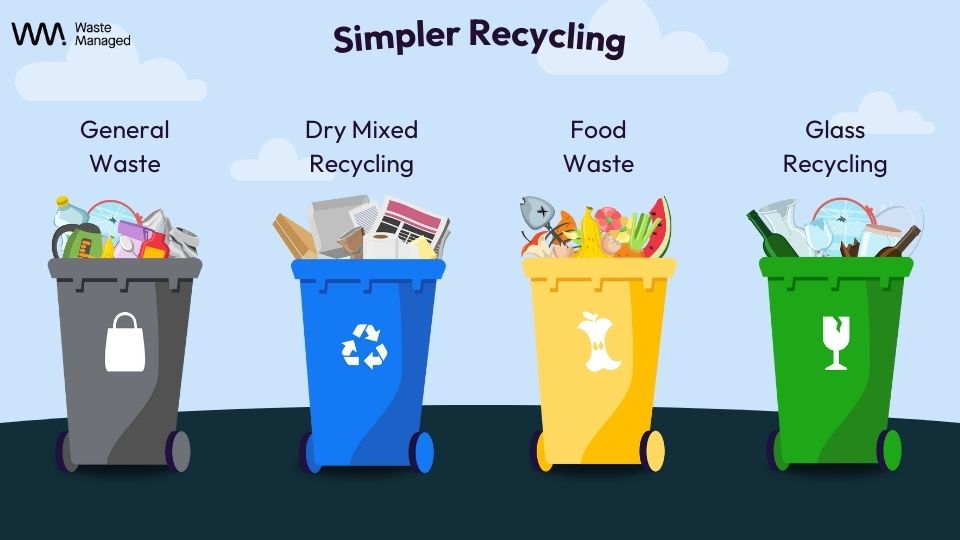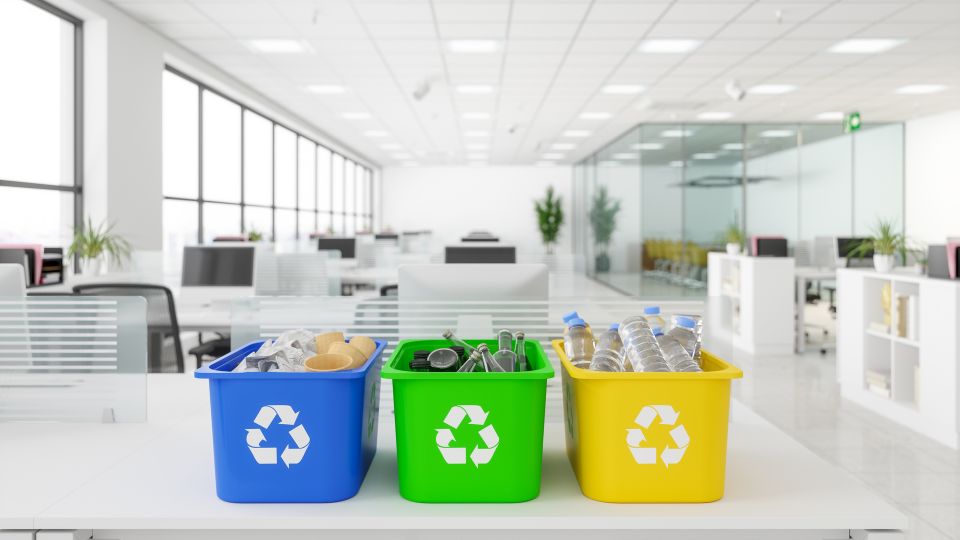
Quick Summary
- Recycling Saves Water: Recycling reduces water usage in raw material extraction and manufacturing, helping businesses lower their water footprint and operational costs.
- Prevents Water Pollution: By minimising landfill waste and incineration, recycling protects water sources from contamination.
- Boosts Sustainability and Reputation: Businesses that embrace recycling improve their sustainability, enhance CSR credentials, and meet growing environmental expectations.
Table of Contents
- Quick Summary
- The Importance of Water Conservation for Businesses
- Recycling and Water Conservation for Businesses
- Recycling in Business Operations
- The Broader Environmental and Business Benefits
- What Businesses Can Do to Conserve Water
- The UK’s Progress and Challenges in Business Recycling
- Conclusion
Water is one of the planet’s most valuable resources, yet it is increasingly under threat from climate change, population growth, and industrial demand.
In the UK, the significance of water conservation has never been more critical.
One of the lesser-discussed but impactful ways businesses can conserve water is through recycling.
This blog explores the connection between recycling and water conservation, shedding light on how companies can implement sustainable practices to protect water supplies.
The Importance of Water Conservation for Businesses
Water conservation refers to the practice of using water efficiently to reduce unnecessary waste.
While the UK may not appear to have severe water shortages, the reality is that rising temperatures and uneven rainfall patterns are placing immense pressure on the nation’s water resources.
According to the Environment Agency, parts of England could face significant water deficits by 2050 if current usage trends continue.
For businesses, conserving water is not just of environmental importance but also a cost-saving measure.
Reducing water usage can lower operational costs, improve regulatory compliance, and enhance corporate social responsibility (CSR) credentials.
Addressing hidden water usage embedded in products and processes is an essential step, and this is where recycling plays a vital role.

Recycling and Water Conservation for Businesses
Recycling involves converting waste materials into new products, reducing the need for raw materials and the energy required for production.
What many business leaders may not realise is the substantial amount of water saved in the process.
Here’s how recycling can benefit organisations:
Reduced Water Usage in Raw Material Extraction
Extracting raw materials such as metals, oil, and minerals requires significant amounts of water.
For example, mining for bauxite to produce aluminium involves extensive water usage for cooling, dust suppression, and ore processing.
Recycling aluminium, on the other hand, bypasses the extraction process entirely, reducing water consumption by up to 95%.
Businesses that incorporate recycled materials into their supply chains can significantly reduce their water footprint.
Lower Water Needs in Manufacturing
Manufacturing new products from raw materials is water-intensive.
For instance, producing paper from virgin wood pulp requires far more water than recycling old paper.
According to Bywaters, recycling paper saves up to 80% of the water associated with the virgin production.
By choosing recycled inputs, companies can make their production processes more sustainable.
Minimising Pollution in Water Sources
Landfilling and incinerating waste can lead to water pollution.
Toxic leachates from landfills can contaminate groundwater, while emissions from waste incineration can result in acid rain that harms water bodies.
Recycling reduces the volume of waste sent to these facilities, thereby helping to protect the UK’s rivers, lakes, and reservoirs.
Businesses that adopt strong recycling programmes contribute to cleaner water sources and healthier ecosystems.
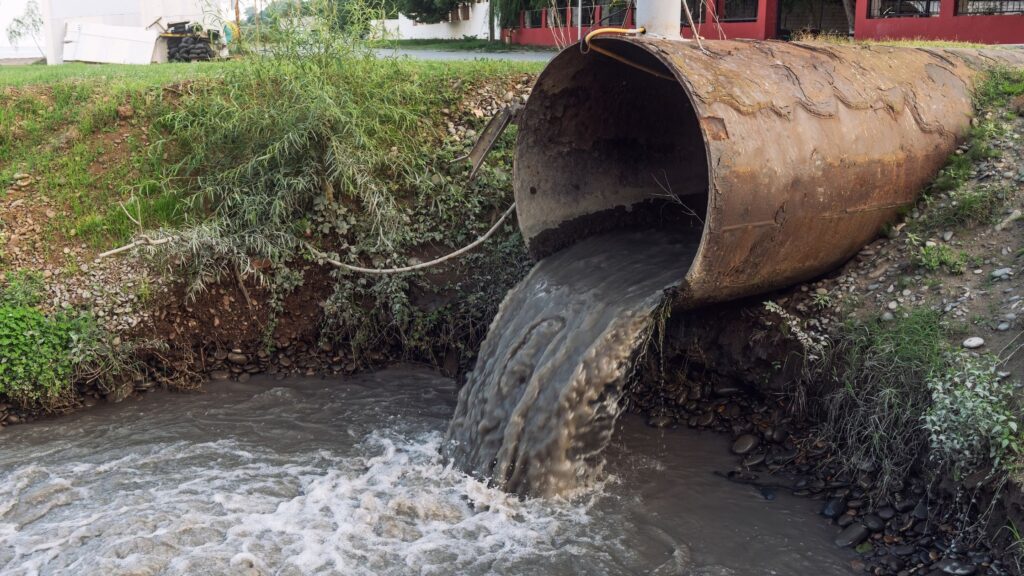
Recycling in Business Operations
- Plastic Recycling in Retail
According to a report conducted for WWF, it is estimated that by 2030 the UK will be responsible for producing 6.3 million tonnes of plastic annually.
This same report shows that packaging accounts for 67% of the UK plastics waste stream.
Producing new plastic requires large quantities of water for cooling and processing.
By implementing closed-loop recycling systems, businesses can create packaging from recycled materials, halving the water usage compared to virgin plastic production. - Metal Recycling in Manufacturing
Manufacturing companies that recycle metals like aluminium and steel see considerable water savings.
Recycling aluminium saves up to 95% of the water compared to primary production, while steel recycling reduces water use by about 40%.
Adopting recycled metals in production lines can significantly lower operational water consumption. - Glass Recycling in Hospitality
The hospitality industry generates large volumes of glass waste.
Glass is 100% recyclable, and using recycled glass reduces the need for raw materials such as sand, soda ash, and limestone, all of which require water during extraction and processing.
Hospitality businesses that prioritise glass recycling can save up to 50% of the water used in manufacturing new glass products.
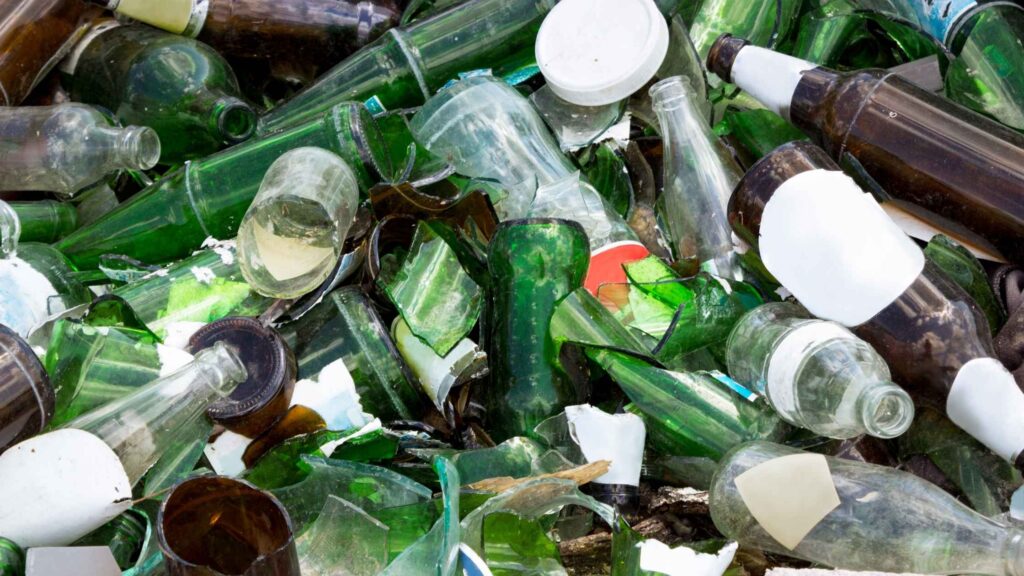
The Broader Environmental and Business Benefits
The benefits of recycling extend beyond water conservation.
By reducing the need for raw materials and energy, recycling also helps lower greenhouse gas emissions.
This, in turn, mitigates climate change, a major driver of water scarcity.
Additionally, recycling reduces the strain on landfills and incinerators, helping to maintain cleaner and healthier ecosystems.
For businesses, adopting recycling practices can enhance brand reputation, improve stakeholder engagement, and align with sustainability goals.
Customers and investors increasingly prioritise companies that demonstrate a commitment to environmental responsibility.

What Businesses Can Do to Conserve Water
Businesses can take several steps to incorporate recycling into their operations and conserve water:
- Audit Waste Streams: Analyse waste output to identify recyclable materials such as paper, glass, metal, and plastic.
- Partner with Sustainable Waste Brokers : Work with reliable, environmentally-focused waste management companies (just like us!) to ensure waste is processed sustainably.
- Source Recycled Materials: Incorporate recycled materials into products and packaging to reduce the water footprint of production.
- Educate Employees: Provide training to staff on the importance of recycling and water conservation.
- Invest in Circular Practices: Explore circular economy models that minimise waste and maximise resource efficiency.
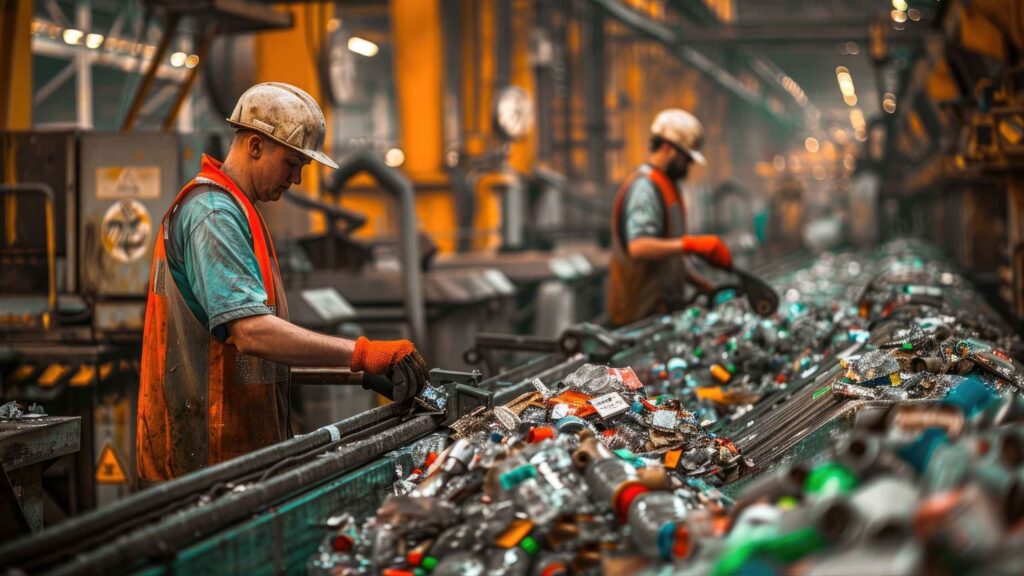
The UK’s Progress and Challenges in Business Recycling
The UK has made significant strides in recycling, with business participation playing a key role.
However, there is still room for improvement, particularly in addressing contamination in recycling streams and expanding infrastructure for recycling complex materials like mixed plastics.
Government policies such as deposit return schemes for beverage containers and extended producer responsibility programmes aim to boost recycling rates while conserving resources, including water.
Businesses that proactively adopt these measures can position themselves as leaders in sustainability.
Conclusion
Recycling is more than just an environmental practice; it is a vital strategy for water conservation in the UK.
By reducing the need for raw material extraction and manufacturing, recycling saves enormous quantities of water while protecting our natural water sources from pollution.
For businesses, embracing recycling is not only a responsible choice but also a competitive advantage.
By integrating recycling into operations, companies can reduce costs, enhance sustainability, and contribute to a healthier environment.

